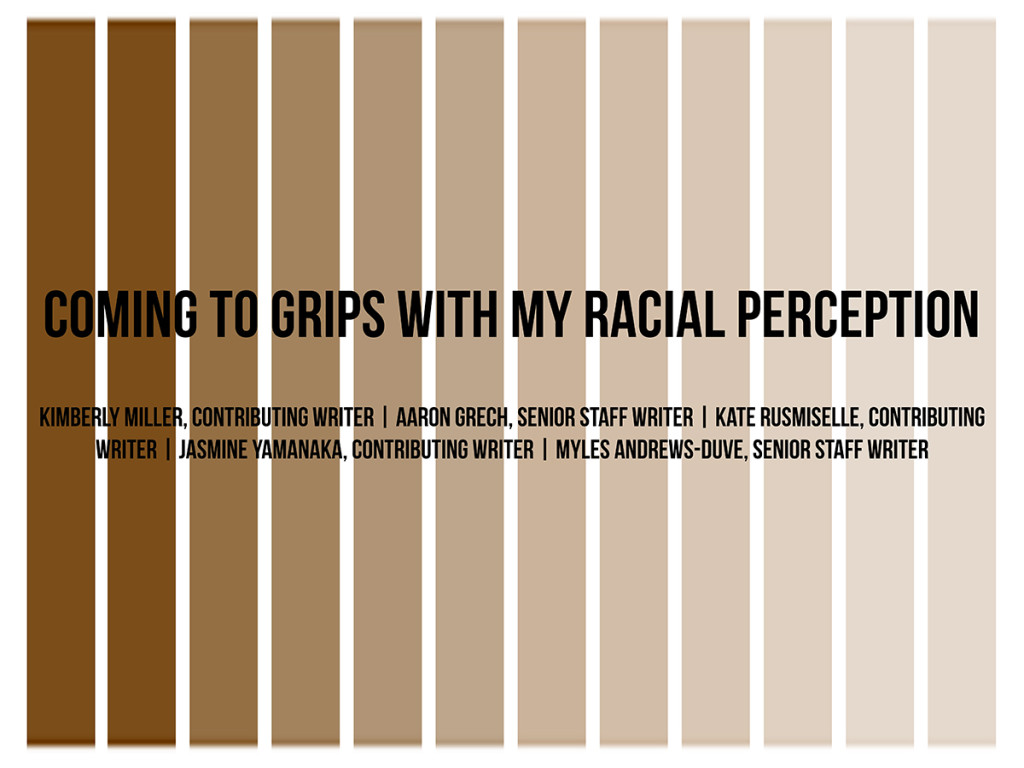
“You speak to your mom in Spanish?” my coworker inquired one day at the office when I answered a phone call from my mother. While I didn’t give the question a second thought, it puzzled me. Why was he surprised? I thought it was obvious; given that my coworker knows that I’m Latino, that I would speak to my Mexican mother in her native tongue.
I pondered my identity for a while after that: What about my character gave off the impression that I wasn’t fluent in Spanish?
The issue is there really isn’t a solid answer to that question. Every time a question about my cultural identity or heritage occurs, I begin to ask more. Questions such as “Do you have tamales for Thanksgiving?” to “What country are my white father’s parents from?” suddenly become much more complex, leaving more questions. Do I really seem so white? Do people think I’m ashamed of my Latino heritage?
When I took ethnic studies this issue was often glanced over. It was too complex for the professor to go over in detail for an introductory class. Television programs, such as the Racial Draft skit on “Chappelle’s Show” parodied this idea, yet the question remains unanswered — where does my cultural identity lie, with my white self, or my Latino one?
For the longest time, I felt that it was neither. My name is Hebrew and European. Much of the media and literature (Harry Potter, Sherlock Holmes, Shakespeare) I consumed was “white.” The way I dress, speak and behave are considered “white” attributions by my peers. Yet, my tan skin, the language I speak at home and connections with my mother’s family tell a different story. They’re what contribute to my Latino identity.
This internal conflict between my cultures isolated me; I became uncomfortable with myself and began to lose confidence. When I attended high school I felt ashamed of my Latino identity — as it was considered lower class — so I attempted to hide this by becoming obsessed with British culture. I felt that by hiding who I was, I could be accepted by others.
As I got older and learned about Latino history and culture, I was no longer ashamed by my Latino identity. It became a source of inspiration. Yet, I felt that I would have to prove this identity by using Chicano slang, explaining where my mom comes from or speaking in Spanish to overcompensate my whitewashing.
It took a while to realize that only I can define my identity and become comfortable with it. There wasn’t one event that made me come to this conclusion. As I got older, people would keep asking the same questions, (“What are you?”), expecting a solid answer. In order to be honest with myself, I had to learn that there are no solid answers. By attempting to settle for one identity, I ended up lying to myself.
I eventually became confident with who I was as a person, without these racial stratifications. My identity and cultural upbringing are not inherently determined by the media I enjoyed, the subjects I studied or how I dressed.
Eventually, those questions that created so much conflict no longer needed to be answered.








